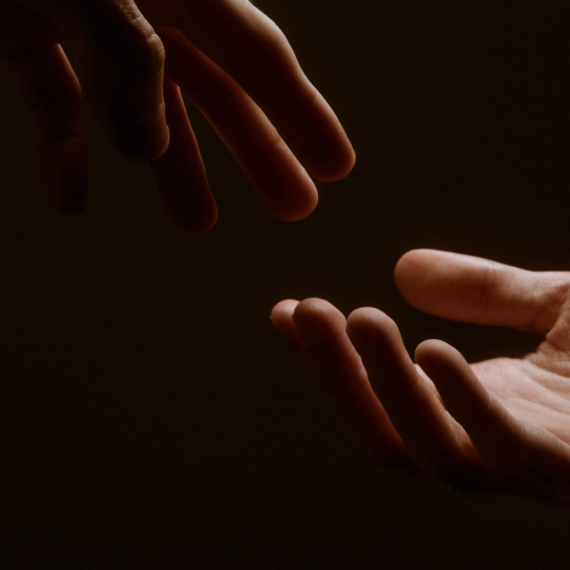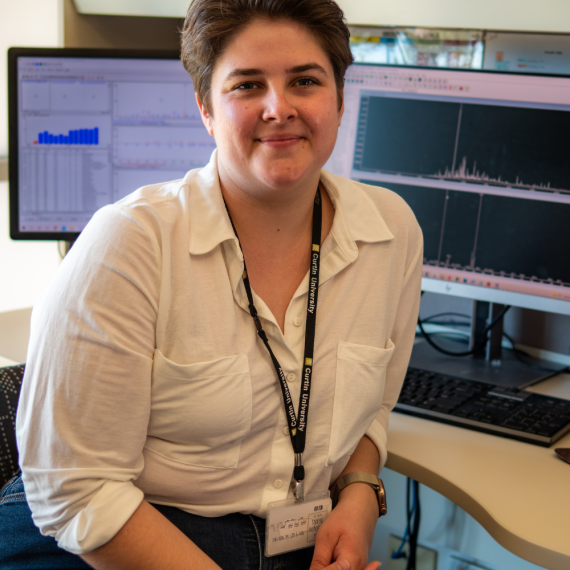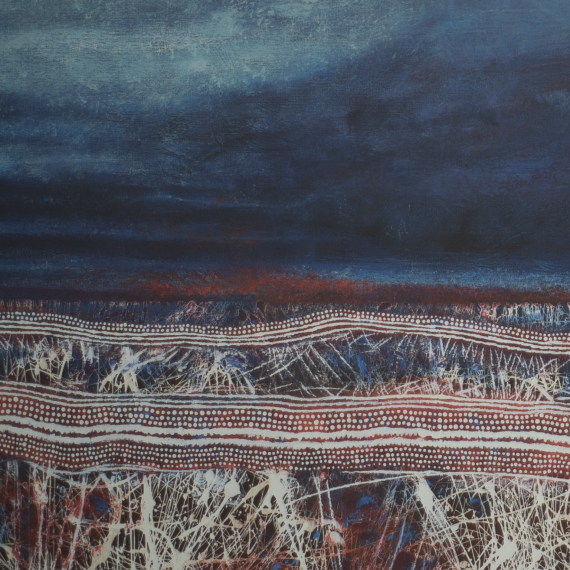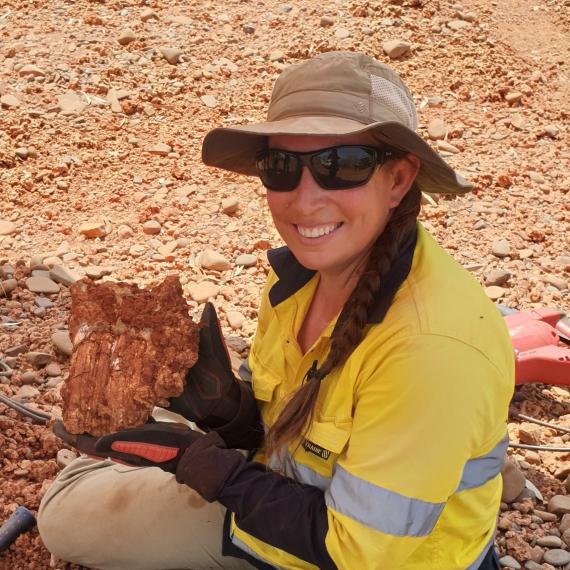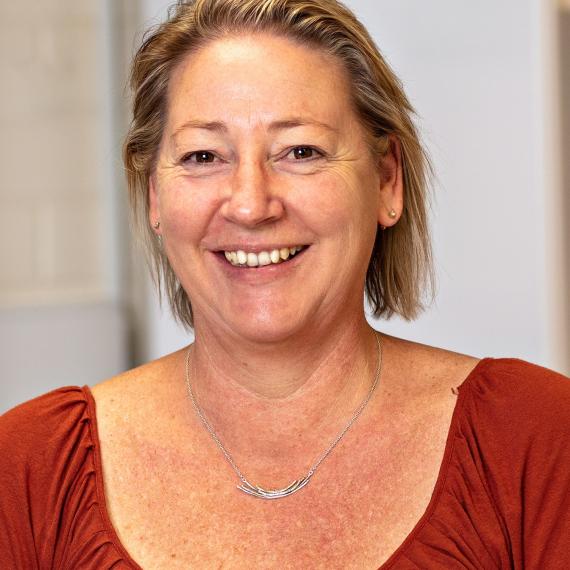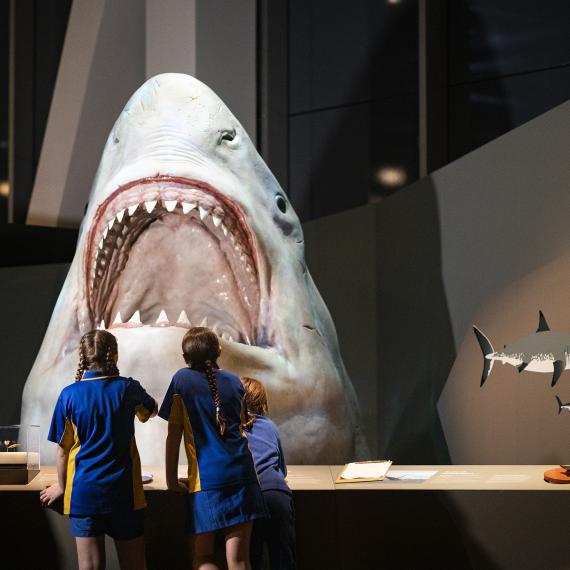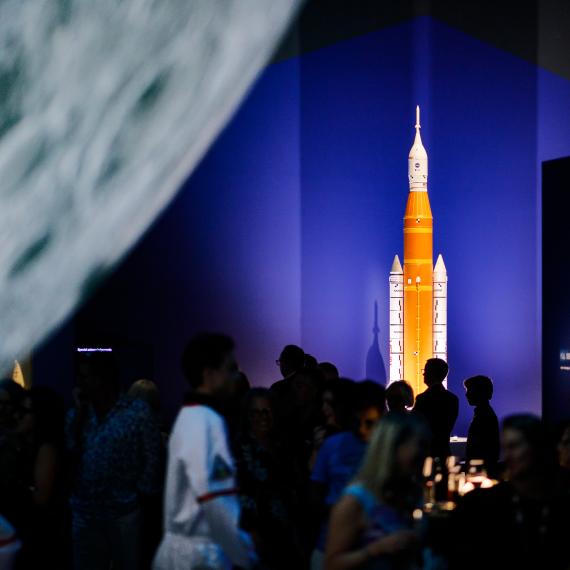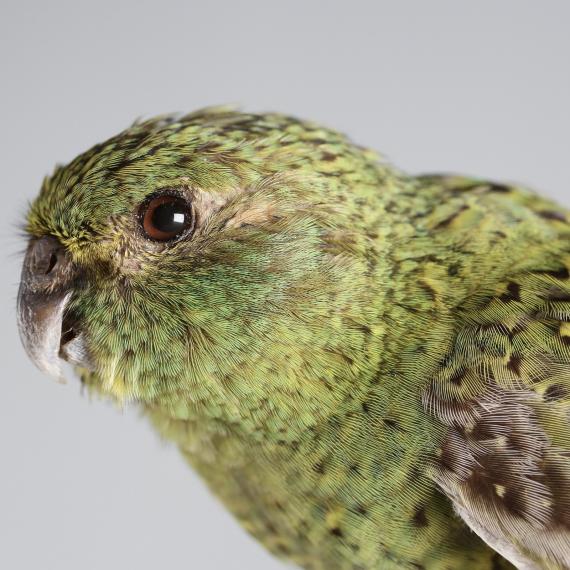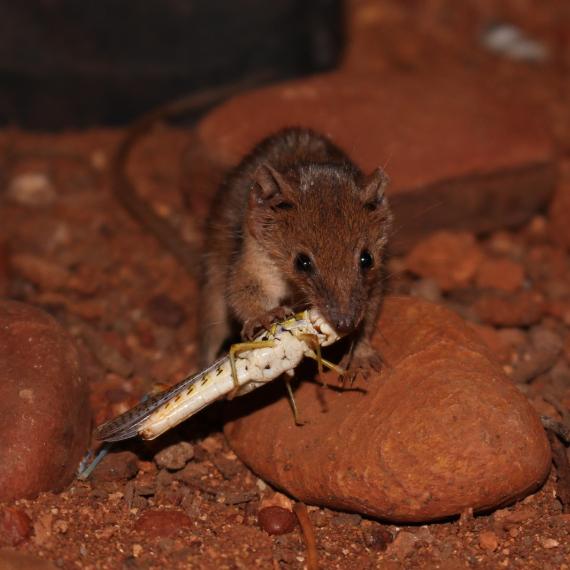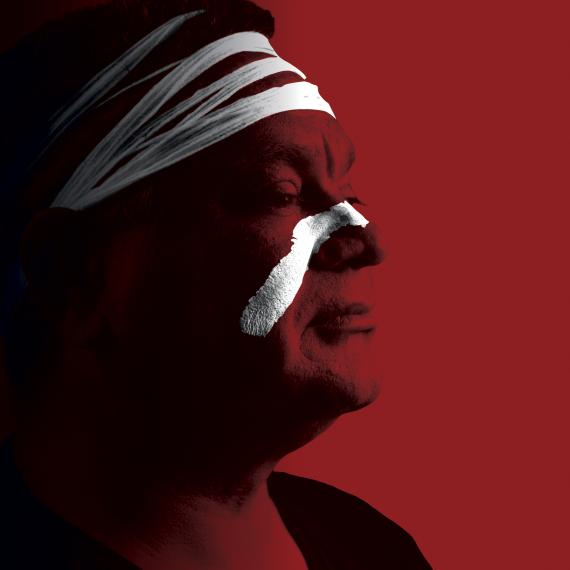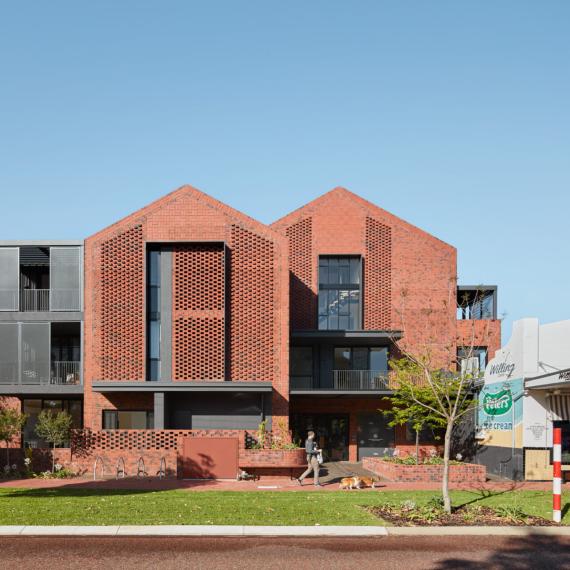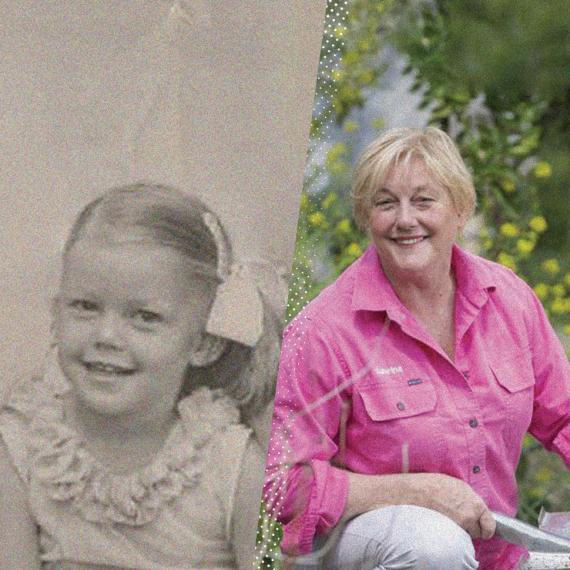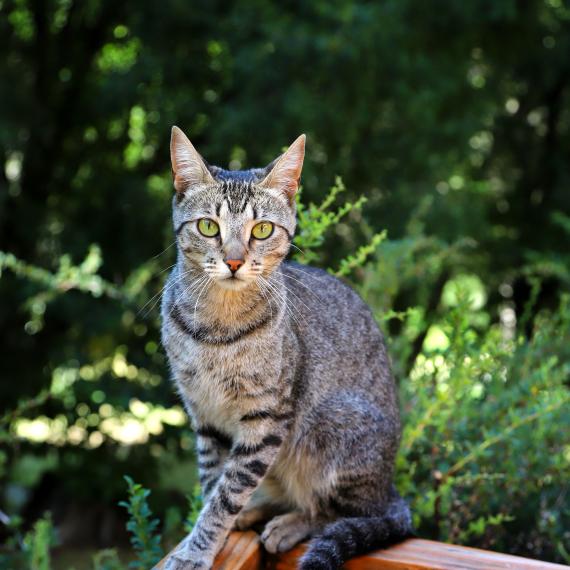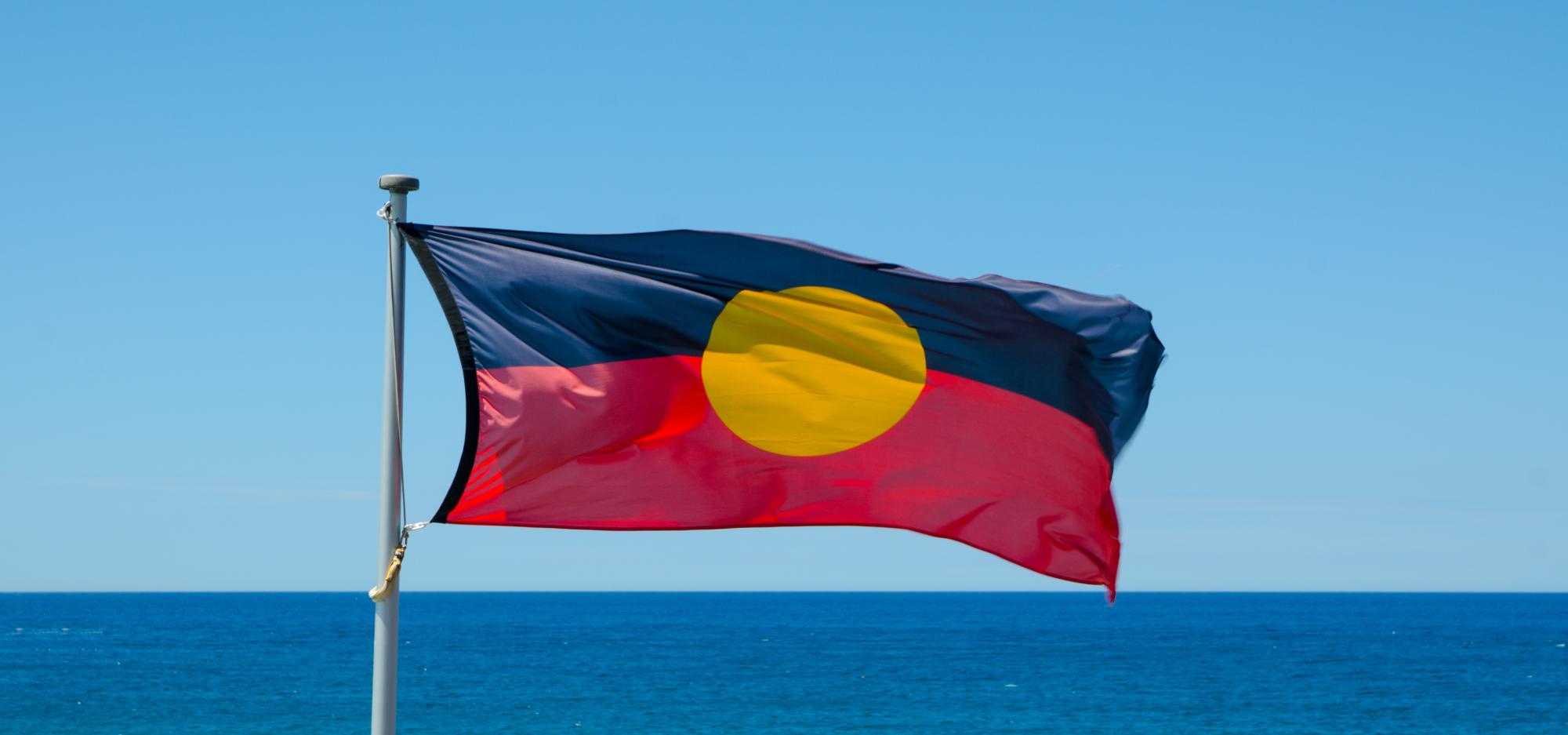
In Conversation: Reconciliation and sharing the work
Re-framing and re-distributing the labour of reconciliation.
In October 2023, Indigenous leaders and community, those who advocated for and supported the Yes campaign, observed a week of silence to mourn the result of a majority "no" vote in the referendum.
Prime Minister Anthony Albanese said, “When it comes to moving forward, I think it’s up to all of us to come together and find a different way to get to the same reconciled destination.”
Many of us are asking, how? What will be the call to action now, at national and local levels? And how much will we look to the language of activism in finding the way forward?
Join Nolan Hunter, Aboriginal Co-Chair of Reconciliation WA, and Gary Smith, Non-Aboriginal Co-Chair of Reconciliation WA, in Conversation with Roanna Edwards, for a discussion spotlighting different perspectives in considering what comes next in the fight for Aboriginal recognition, respect and justice, in a model that evenly re-distributes the load among non-Aboriginal Australians as well.
Panel
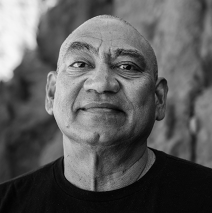
Nolan Hunter is the current Aboriginal Co-Chair of Reconciliation WA. He is the Ex-CEO of the Kimberley Land Council – a not-for-profit Native title rep body (NTRB). Nolan has ties to his people through Bardi and Yawuru native title across saltwater country in the Kimberley Northern Western Australia.His experience span thirty years of Strategic Operational Management and Governance, including directorship of several Indigenous organisations in the Kimberley, including Goolari Aboriginal Media, Mamabulanjin Aboriginal Corporation, and current Board Member of Kimberley Land Council. Nolan brings passion on advocacy to issues of Indigenous and human rights, cultural maintenance through land management, development of future economic and social opportunities. He has engaged on several national, international, and domestic forums talking to Indigenous economic development, the empowerment agenda, International Community events, and Climate forums on Indigenous land management modelling. Nolan was Co-Convenor at the Dialogues for Pilbara and Kimberely facilitated by Referendum Council’s second dialogue, and previous Director Uphold & Recognise on Constitutional recognition. Nolan's current role is Head of Engagement Uluru Dialogue through UNSW Indigenous, Indigenous Rights Lead with Amnesty International and Advisory Panel Member to Minister Hon. Sussan Ley MP Minister for the Environment.
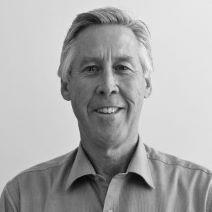
Gary Smith is the current Non-Aboriginal Co-Chair of Reconciliation WA, having been appointed to the Board in August 2016 and then to the role of Non-Aboriginal Co-Chair early in 2017. In this capacity, Gary is committed to advocacy and action for Reconciliation between Aboriginal and non-Aboriginal Western Australians, in addition to also acting as a current Director of the WA Aboriginal Leadership Institute (WAALI). Other important roles supported by Gary during his career include his achievement as a Founding Director of the Committee for Perth and a long term and active participant in the Hawaiian Ride for Youth. More recently, Gary was appointed the seventh Chancellor of Murdoch University, after a long career with KPMG, concluding over 7 years as their WA Chairman in early 2019. A highly regarded businessman and community leader, Gary is an active Co-Chair of Reconciliation WA and looks forward to continuing to apply his role to drive implementation of Reconciliation projects and leadership for the benefit of Western Australia.
Facilitator
Roanna Edwards is an experienced community engagement manager with a demonstrated history of working in the utilities industry and across Aboriginal Affairs. A journalist by trade, Roanna is now working through a Bachelor of Arts focused in Political Science and International Relations from The University of Western Australia. Roanna is a former ABC Radio presenter and is currently PwC’s Director of Indigenous Consulting.
About In Conversation
A safe house for difficult discussions. In Conversation presents passionate and thought-provoking public dialogues that tackle big issues and difficult questions featuring diverse perspectives and experiences.
Held monthly at the WA Museum Boola Bardip, in 2023 In Conversation will take different forms such as facilitated panel discussions, deep dive Q&As, performance lectures, screenings and more, covering a broad range of topics and ideas. For these monthly events, the Museum collaborates with a dynamic variety of presenting partners, co-curators and speakers, with additional special events featuring throughout the year. Join us as we explore big concepts of challenging and contended natures, led by some of WA’s most brilliant minds.
-
Episode transcript
Introduction:
Welcome to In Conversation, a series brought to you by the Western Australian Museum Boola Bardip. In Conversation is a safe house for difficult conversations and passionate and thought-provoking public dialogs that tackle big issues and difficult questions led by some of WA’s most brilliant minds. In Conversation is recorded on Whadjuk Nyoongar Boodja. The Western Australian Museum acknowledges and respects the traditional owners of their ancestral lands, waters and skies.
Rosanna Edwards:
There's the hush, perfect timing. Must be 7:00pm on the dot. Thank you, everyone, and welcome to this event. I'm going to introduce us in just a moment because importantly, I'd like to start with the formal welcome to everyone here to this beautiful Whadjuk Nyoongar Boodja and, ah, Robyn Collard and her gorgeous grandson, Tryce, are here to welcome us. Thank you.
Robyn Collard:
[Speaks Nyoongar language for approximately one minute before translating].
Hello and welcome to Nyoongar Country. Our men and women, our brothers and sisters and our leaders, Welcome. Our family have walked this land for many thousands of years. My heart is happy to welcome you here this evening.
[Speaks Nyoongar for approximately forty seconds before translating]
So, I've just taken you around the metropolitan area. Some very significant places where we are. And of course, you're sitting here, listening and watching, in Boorloo, in Perth and of course, Matagarup, just behind us. The place of the river crossing where the water comes up to the top of your leg and our ancestors would cross over, there many times from the north of the river to the south. And of course, Heirisson Island itself is the women's birthing place. And as we see, Heirisson Island, we then come around the bend of the river and of course go past Boorloo or Perth, and then we come to this magnificent Hill, Kaarta gar-up, the place of not only the Kaarda, the racehorse goanna, but it's also the home at the top of the hill, Kaarta Koomba.
But also, as you stand at the top of the hill, you can look out and see all of these beautiful places that I've just mentioned. Djinanginy Bo, you can see a long way. And as we traveled down the Marlee Bilya, or the Swan River, we go some past some other significant places that I forgot to mention. I'm going to name one of them, Joondalup, the Noongar place of Joondalup. Only because Tryce and I were there last Friday doing some beautiful tours and stories about Joonda, and the beautiful sandpit was exposed the whole day because the tide was out. So, to be able to share the story of Joonda and how she would tangle children up in her long white hair is also very poignant. But it is also very topical because it's about keeping your children safe in case the tide comes in and washes them away so that they then become stars in the sky in the Milky Way.
But it's also another place along the Marlee Bilya where people would cross over because when the, the tide went out, all of that sandbar was exposed, whereas these days it's been dredged so the boats can come in and out, but it is truly a beautiful place. And then we go further along until we come to Walyalup. Two reasons why it's Walyalup. Home of the Woylie, the little rat-kangaroo, the little marsupial, but also home of the eagle, the Waalitj, place of the eagle. We then, of course, cross the ocean until we come to Wadjemup and it's also important to hear the truth telling stories of the island. And then we go down to Meandup. You might know it as, sorry, the Derbal Narra, Cockburn Sound.
Then we go down to Derbal, ah, sorry to Meandup. You might know it is Garden Island. Now there's also a wonderful creation story about Yondock, the Crocodile and Waugal, the serpent fighting and creating Wadjemup, Meandup and all of that and sea in between. And also, at the beginning of the Swan River, where Yondock’s tail and his legs are supposed to be. So, we hear that story. We then come back to Walliabup and where the beel (6:39) is, that beautiful freshwater, that land. It nourishes the land, the people, the animals, the plants, including us, beel. And then we come to Djarlgarro, the Canning River. Now the Canning River also runs towards Kattamorda, and you can see Kattamorda in the distance, Have a look. The Black Hills, the Dowling Ranges. Before we come up to Ma, Mandoon, the place of many trees, and that's around the Guilford and Midland area. Before we go up to the shire or the town of Joondalup in the northern suburbs. And of course, it goes further, our boundaries. But it's also about remembering Djiralak, Kongalak, Marawak, Sorry, Djiraly, Kongaly, Boyalak and Marawak, from the north to the south, the east to the west. This is what Whadjuk Nyoongar Boodja. And of course, I did mention a couple of the lakes there, Galup and Ngurgenboro. Lake Monger and Herdsman like our very own traditional places of where our ancestors were born and grew before they were shifted out to this little town called Brookton. So that's about that story of this place and where we are.
It's so important and for you this evening, a very topical discussion, because I know for me when I did my Welcome to Country after the referendum, [speaks a Nyoongar phrase and then translates] my heart was hurting so bad and there were times when I could not bear to wear my bwoka because of the hurt. It is truly a time for healing [Speaks Nyoongar phrase] because there are others that need to walk with us to carry some of that load. And it was also so important for audiences to see a face with the pain of the rejection. So, for me as a youngster, the first ten years of my life, I was ne…. I was seen as a plant or animal until the ‘67 referendum gave us the right to be seen as people in our own lands, not only me but others in our family. So, there was that hurt. There were others welcomes that I did, particularly with a group of psychologists who were in absolute tears because we spoke of the trauma, the layers of trauma that were a result of that referendum. And for me, regardless of whether we voted yes or no, our indigenous people were hung out to dry. We have seen the trolling, the racism on social media. How do we navigate this journey now? Because it isn't just about us. This is about our future. The world was watching us as a nation. Were we mature enough to see the reasons about why that yes vote should have counted? And then it crossed my mind. How come we are asking others for permission to be seen as peoples in our own country, but also to be voted on? So yes, I still scratch my head on that one. However, we'll put it aside tonight. Let's talk about what we can do for the future for our children, our grandchildren and great grandchildren, because they will be carrying this story for a long, long time. And we share it, and we see it. [speaks four words in Nyoongar].
[Didgeridoo plays]
thank you.
Audience:
[applause]
Rosanna Edwards:
Thank you Djuk, thank you Tryce. Everyone, welcome again and thank you for being here tonight. My name's Rosanna Edwards. I've got the great privilege of leading this conversation tonight. When I woke up this morning, I thought today was going to be one, my one night of the wake where I was going to chill out and stay home and got a call from the team here at about lunchtime for. for a last-minute fill, in to help out with facilitating this conversation because the formidable Emma Garlett, isn't able to do it. But if you're going to have to stand in for someone, this is why always do your homework ahead of time, not at the last minute. Look at Emma's notes that she has prepared for me. So, you know what kind of a stand in job is that? So, I have to give her full credit for all of that, that she has done in order for me to be able to step in here tonight. I'm a director with PWC’s indigenous consulting. I'm a former ABC broadcaster. I lover of stories. I'm passionate about empowerment of our mob. And importantly, I'm a Whadjuk Ballardong woman and thrilled to be here to lead this conversation. Reconciliation and sharing the work. Hopefully that's what you all thought you were coming here for tonight. You haven't taken a wrong turn. Actually, if you have taken a wrong turn, even better, you can see it. Enjoy this conversation. An unexpected one. So, the brief that I have for the conversation tonight goes like this. In October 2023, Indigenous leaders and community, those who, advocated for, and supported the Yes campaign observed a week of silence to mourn the result of a majority no vote in the referendum.
Prime Minister Anthony Albanese said when it comes to moving forward, I think it's up to all of us to come together and find a different way to get the, to the same reconciled destination. That's left many of us asking how? What will be the call to action now at national and local levels and how much will we look to the language of activism in finding the way forward?
So tonight, we've got Nolan Hunter on the end, Aboriginal Co-Chair of Reconciliation WA and Gary Smith, Non-Aboriginal co-chair of reconciliation, in conversation with me now for a discussion spotlighting different perspectives and considering what comes next in the fight for Aboriginal recognition, respect, justice in a model that evenly distri…. redistributes the load among non-Aboriginal Australians, as well. The beauty of this nice little group is that I'm happy to guide the conversation for half an hour or so. But if you've got questions that you've come here itching to ask, I promise you that we will allow enough time for you to get those questions to these wonderful men and get their thoughts here this evening. Just a quick intro to the two of them. If you haven't, aren't familiar with them, many of you, I'm sure are. I'll give you a condensed version. I'm sure if you go online where you both you can read all the details if you really want to. But as I said, Nolan’s the current Aboriginal co-chair Reconciliation WA, he's the CEO of the Kimberley Land Council. Ah, the native title rep body up there in the Kimberley and Nolan has ties to his people through Bardi and Yawuru native title across saltwater country in the Kimberley of WA. He's an Indigenous rights lead with Amnesty International and an advisory panel member to the Minister. Honourable Susan Ley MP, the Minister for the Environment at the Commonwealth level. And Gary Smith right here next to me is the current non-Aboriginal Co-Chair of Reconciliation WA, as I said. Having been appointed to the board back in 2016 and then to the role of non-Aboriginal co-chair early in 2017. In this capacity, Gary is committed to advocacy and reconciliation for, ah, a, advocacy and action, I should say, for reconciliation between Aboriginal and non-Aboriginal West Australians, in addition to also acting as the current director of the West Australian Aboriginal Leadership Institute. So please welcome both the Nolan and Gary.
Audience:
[Applause]
Rosanna Edwards:
Gents. Your credentials speak for themselves. You've both been in and around Indigenous affairs for a really long time and reconciliation in particular. It's not an easy career choice to make, one that my mom warned me to stay well clear of. But bless her, I completely ignored and I'm sure you both could have chosen other directions to take your, to take your careers is in. But to get us started, Nolan, what drives you and why do you do what you do?
Nolan Hunter:
Um, so, so you mentioned careers. But before I start, I just want to acknowledge. Thank you, Robyn, for the welcome. It's always good to hear the stories. I've moved down here now, and I'm privileged to be on your country and ah, up in the hills at the end of 2020. And we have a process back home when we go out on country, especially when there's places we haven't been to for a long time, and you have to announce yourself to lift the spirits of all that and it's really about showing the respects to your people, your ancestors, or the people that were there or the spirits and all that. So, this whole notion of respect is a central element in when you look at reconciliation. I think this is about how do we as a community sit together and of course, the referendum, the no vote kind of exemplifies the point that now more than ever, we have to, you know, pull up our boots and do so many things.
I'm an optimist. And I think about, you know, how do we take the learnings from the no vote? And I also look at the glass half full and understanding that, you know, we only lost by 12 per or whatever it was. And the other thing is that to understand that there were people in Australia, non-Indigenous people who voted no but wanted to vote yes, from what I've heard, and when we did polling and also my previous role was with the head of engagement for the Uluru dialog. I was the Co-convenor for the second dialog with the Pilbara and Kimberley with the Referendum Council. I was at Uluru; I was working at the Indigenous Law Centre UNSW with Professor Megan Davis and the team. So, it's a long process. We started back in 2016, so last year, I hit the wall and was very tired, so I'm grateful now that I no longer have that role but that's where my passion, I guess, if you want to call it a career. It's more about two things. One is what can I do to put our people in the strongest position? And by that you, by default, need to understand that, you know, how do we create a society or a structure that we want to see as a people?
So, this is a… I was talking about journey, I was talking to Gary, the other day, a journey, a shared journey that we as Indigenous and non-Indigenous people in Australia still have to do because history created some challenges. And I do debriefs. If you want to debrief on some of the kind of process of Uluru and the dialog and all that, that's another process that I do that voluntarily anyway.
But I've been invited to talk to different groups and that because there's so many facets of the information or misinformation that people haven't gotten to understand. Even when people are going to vote, they still didn't have some of the basic information and we went through a process of education and raising awareness as best we could, other things needed to occur.
So, the kind of long story short in a roundabout, this journey now for me as co-chair of Reconciliation WA, means we got to get really busy. I want to talk to lots of people in W.A. and, you know, connect with different people, especially our communities. And so, we've got a whole process lined up and the question I put to the board after the referendum was how do we take stock of this no vote? What is it that we need to do different, tactically, strategically or whatever else that we needed to do? Because we can't ignore that that kind of set the…. what is it…. something among the cart or something... I can’t... I forget the analogy. Anyway, it set the confusion and it set back some of the things. I mean, we saw welcome the country and you saw some of the bad publicity coming out about that.
But just know that it comes from this welcome stuff comes from a place of respect. Right? And in any culture, I don't care where you go in the world, and I work in different places around the world as well. But you can see that different cultures and societies have different ways that they practice this form of respect. So, it's not a new thing.
Anyway, I probably talk too much,
Rosanna Edwards:
That’s alright, we got some time.
Nolan Hunter:
I’ll hand back to you.
Rosanna Edwards:
Um, Gary, what about you? What made it motivates you to be in this space?
Gary Smith:
You know, I've got heaps of stuff to talk about now.
Rosanna Edwards and Nolan Hunter:
[laugh]
Gary Smith:
Hi, everyone. Um, my name's Gary Smith. Robyn, Thank you, and to your grandson for your welcome. I've, um, been at a number of Robyn's welcomes and there's always education and there's always topical relevance as well, so you think deeply about it, and I appreciate that, and I grow a little bit every time I hear it. I also like to do my own acknowledgments simply because I like to do it. And that makes me just a little bit closer to a culture that is Australian, and I didn't create it, but I want to enjoy it and I don't understand why every Australian doesn't just grab it and and enjoy it as well and we're still in process there. But I acknowledge the Whadjuk people as the custodians of the land that we're on and this wonderful building is on and their elders past and present and also want, uh, acknowledge First Nations people who are here tonight, I acknowledge the resilience that, that is there incredibly, after that one week of silence, the resilience kicked in. In fact, I think it was more like day three that kicked in and people starting to talk of setbacks and so on. Whilst I felt gutted and felt, um, I'm having a bit of a cry sort of thing and is strong and leaders around me saying let's get on and let's double down. And so on. So, I acknowledge all of that and, and you talk about the passion. I'm one of those corporate types that came through the big professional services firm and so on and so forth.
Rosanna Edwards:
I won’t hold that against you [laughs]
Gary Smith:
Yeah, I, yeah….
Audience:
[laughs]
Gary Smith:
So, so this, this journey was something that visited me in the beginning whereas a senior person in those organizations, I engaged with people like Aunty Robyn in, in welcoming them to do a welcome to country without really understanding what that was about. You know, it's fully way back and by the time you got up to thank them, they'd left the room because probably the cultural safety wasn't there to be honest and, ah, and slowly started to understand and see an Australia that I'd been pretty ignorant about coming from boyhood in Geelong in Victoria and ah, and so and then you go through this slight awakening and a disappointment with your country that these issues are here and there are people fighting for equality and equity out there and then you become a little bit ashamed or embarrassed and then you become frustrated as to why hasn't someone done something about this? And then you come become a bit angry about it and then you become a bit passionate. And I have to say for me, you know, I would have said before this period in my life, my passion was my clients. How empty is that? You know, really, it's important to look after your clients, but to actually have a passion, which is a social enlightenment for a country and to be able to be part of that and to be embraced so fully by Aboriginal people. I've always felt an embrace was something that was was very special. So yeah, that's my passion.
Rosanna Edwards:
So, what do you say when, um, you know, people ask Gary Smith, non-Indigenous fella, what reconciliation is? How do you describe it?
Gary Smith:
It's I mean, there's complex answers and simple answers to that. And I also acknowledge the reconciliation versus conciliation, um, er, there's a lot of Aboriginal people would say, well, what did we do? Knock yourself out fella. You come to us with what you think you'd like to talk about and maybe we’ll have a conciliation now, but reconciliation for me in a simple perspective is, is a more harmonious society between all peoples. But on this occasion, specifically with Aboriginal and non-Aboriginal people, so that we are engaging together, I don't know when it arrives, when reconciliation is done, it's like saying witness racism done. You know, it's a huge challenge and we're going to be at it for a time, but it's an aspiration for greater harmony, greater respect, greater quality of relationships, sharing of opportunities with each other.
Rosanna Edwards:
Would you add anything to that kind of definition or description Nolan?
Nolan Hunter:
Um, Yeah, look, look, I probably… see it… differently. Not so differently as to disagreement….
Gary Smith:
But I still got it wrong, didn’t I?
Rosanna Edwards, Nolan Hunter and Gary Smith:
[laughs]
Gary Smith:
Nah, nah, it’s all good.
Nolan Hunter:
No, I think it is to ask the question right, what is it that we wanted? you know? what is… I, I, I go to the kind of principles around trying to understand what is the principle of reconciliation? What are we what are we trying to achieve here? And I talked about some elements of that in terms of relationships with non-Indigenous Indigenous Australia. But to understand that the whole point of the voice and the referendum was about saying that there are societal construct issues that mean that people are affected differently and so I when I gave a lot of my talks, I talked about what are the symptoms that and the trajectory of coming from history of our people continuously asking for change. Things weren’t right. And the issue was that whenever we were talking, we would never talk about our opinions about the referendum or, you know, whatever it was around the rationale and logic and all that. It’s about understanding that there is this consistency that goes right back in history for Indigenous people, right? The consistency in the ask for change. And what was more striking was the fact that any day in this country, any year, you can look at the statistics and evidence and the facts that spell out that Indigenous people sit here, and the rest of Australia sits here. And so, you have to ask the question then why is that? What is it? And I talk a lot about cause and effect. Everybody's genuinely trying to make change on the ground through the governments or communities. Whatever avenue is not an easy, easy answer. The problem is that if we have continuously been doing things the same way, you know, it's that old analogy about doing things the same way, we're going to continue to get the same results. And so, this voice thing was really critical. It was important because about saying, how do we make a simple shift around that change that needs to occur because that cause and effect is about understanding that it is those systems, institutions, legislative frameworks, policies, etc., and mechanisms that perpetuate the status quo. And so that's how I would probably, you know… it's not just…. it's actually still talking about that in a different way to understand that.
Rosanna Edwards:
It's been a huge year. You know, when we think back to…. I suppose when the Albanese government took power and the announcement was made that this was going to be this referendum was going to happen, and, and then the campaigning formally started and things ramped up and we own probably have our own experiences of what that period was like in the lead up to October 14 last year in Western Australia, we also had the cultural heritage legislation and everything that went on top of that and what that meant to Aboriginal people in Western Australia and how they felt about that. I think only, you know, a week ago we got another kick in the guts when the latest Productivity Commission report was tabled and so damningly, you know, I said what's what's happening in terms of closing the gap is, is terrible and government needs to do better. It's just it feels like, you know, Aboriginal affairs have been so prominent and for us that that's our life. That's not just, you know, government, government policy and we've all had to wade through this together over the last 12 months. You talked about in your opening remarks after the referendum, you said to the board at reconciliation, how do we take stock? Where do we, where do we go from here? I'm interested in what the answer to that was and how the conversation went at the boardroom table. When you asked that question.
Nolan Hunter:
Um, I think a good way to explain that is to talk about the people on our board that have this responsibility, that are committed, people like Gary, Carroll, who've taken a position.
Rosanna Edwards:
Yep.
Nolan Hunter:
And all of our board members and the previous board members going right back. Um. That notion of, creating change, the desire to make a difference, and that there's a whole, you know, there's a multitude of different people’s desire to commit to this. So, when they, when I talk about this, it's not a, it's an easy question to answer because the board wants to know that it continuously strives to, look at our strategies, to look at out the tactics of what we do, what do we need to change? What have we done that's working well? What do we do that we continue to need to do with some of the things that work well. And part of that as a process is that there was no kind of rejection of that. It was really about the board really understands that, I think, that it has its work cut out for it and in understanding that we have a membership and an understanding that we have so many different engagements that we have to do, it's, it’s a huge task. But I think I can satisfactorily say that our board is and the previous people on our boards have been so committed both personally and otherwise to this. And I know Gary from way back a bit and so, you know, he's a serious player.
Rosanna Edwards and Gary Smith:
[laugh]
Nolan Hunter:
And, um, you know, I was hoping to learn from him.
Gary Smith:
[inaudible]… around
Nolan Hunter:
You know, the changing of the guard is one, because we, you know, it's great that we have new board members as well. But the reality is that there is so much to do. And so, when I talked about that, to cut a long story short, it was we know we have to do some things differently and we have to factor that into our strategies and our plans going forward and our engagements. One of the exciting things is about what we have to do going forward with our presence in the rest of... we’re WA out in the regions getting out there and we've already started that as a process.
There was a project called “Respect Rising” that was started before I came on board and there were conversations that started last year. Gary could talk to that better than I can, but the idea is that it's a work in progress as well, but we know we have lots to do.
Rosanna Edwards:
I'm a bit like you, Nolan, and I am probably the eternal optimist and found myself when I pick myself up, probably by November, maybe December, that I could reflect and think, gosh, I think I now look back at the referendum as a giant truth telling exercise and the nation talked to us and we learned some things in there. And by December, I can honestly say I hit a point where I could say, you know, one in three Australians, more than one in three Australians are on board with this, where, where we want to get to. And and when we were talking beforehand, Gary, using language about now more than ever and what we can do. And I suppose picking up from that conversation with the board post and where you move from here, what is, what does, “now more than ever” mean and what do you expect of people and want them to do to, to keep moving forward?
Gary Smith:
Well, following Nolan's comments at the board, it was a very quick… well, not a decision. We already knew that we weren't going to down tools, even though some parts of Australia were saying “Reconciliation’s dead”. We had, so we had to face that as a live question and acknowledge that it had been asked and that people would probably therefore seek a concrete answer from us, even though it was a simple thing in the world to say we're doubling down and now more than ever it is important that we actually work hard to engage in the pursuit of reconciliation, and particularly in a way that I guess addressed some of the shortfalls that came out of The Voice. What stops now? We have lazy racism to deal with now that kind of wasn't there a week earlier. People feel like they're emboldened now to be, you know, publicly negative where they wouldn't a week earlier. Even politicians as we know, people who should be helping us through this. So, um, yeah, and, and to their credit, Reconciliation Australia, if you're not aware, has just come out with that is the logo for National Reconciliation Week to be held in late May, early June this year. So “Now More Than Ever” is a more than ever is a very apt title that allows us all to double down and get to work and Nolan talked about strategies and tactics. It doesn't mean we throw out the good work that we're doing, for example, with Reconciliation Action Plans. But we had a sense that if we're just going to stick with that, that might be a little bit of the keep doing what you've always done, you'll get the same outcome.
Rosanna Edwards:
Yep... yep...
Gary Smith:
I think it was, it was, ah, and will be a good thing to do because it reaches hundreds of thousands of Australians in various ways. Some time you got a little plan that's a shelf sitter for years. Other times you are passionate people that take it up. But, um, we um, we can talk to this as, as, a discussion and maybe as some of the question comes, but we are moving our focus. Nolan mentioned about regional to a, um, scale focus where we're going to ask the people to work with us rather than actually maybe heading into a corporate or a government membership base. Ask them to engage their people their employers. We're actually looking at putting much more of a focus on place rather than, again, silo of a corporate organization, the government agency and so on. But so, it would be fantastic if Western Australia was having a discussion over the next five years about what it wanted to see as a, as a state, as a group of peoples and we could actually base… by averaging all that discussion, we could kind of understand where a mood is, and we work on that with some really major projects. And I'm sure the anti-racism focus and the truth telling focus and that will be bubbling in there. But but I think it's just as important now to engage the state and all the people in the way I hoped voice might engage at least Aboriginal people at a community level and, you know, rural, urban, city. And so, we, we're hoping that maybe now… and it got to the start of your title, a bit of hard work, and you know, heavy lifting for all of us now to say, well, that didn't work, let's all get together and have a first yarn and then a second and then engage in a bit of respect and then engage in opportunity together. Yeah, call me, call me naïve.
Rosanna Edwards:
No, it's not. I wouldn't do that. I, I do want to pick that up and what the role is for Aboriginal people, Torres Strait Islander people in that as well and Nolan, we'll get to that in a tick. Gary also talked about how this process emboldened the racists and, and that was real, and I think it still is the reality in the aftermath of all of this. For you Nolan, throughout that process you were, you know, a key leading figure that was happy to, to talk through all of this and try and persuade people and have them understand the purpose of this. What was the experience like for you? How much racism did you experience? And is it possible that your cultural safety in your own country is worse now than it was 12 months ago?
Nolan Hunter:
Um, look, look, I think there's a couple of things in that. One is that understand that not all of the “No voters” are racist and because we know I mean, when we look at the early polling in that and there was about 60% support and that shifted once the misinformation, disinformation, scaremongering, all of those things. Pe, people talk about what is it, social media stuff, and that's the worst place to take your information because people are expressing opinions and not based on facts or, you know, tangible research or anything like that and that's a dangerous tool. It's good and it's bad, right? But there are other things like that and so people are quickly influenced or pushed into a position by the clever way media works, by the clever way, and you know this, you know… But so, there's a number of factors, and I honestly believe that the racist element represent a smaller proportion of the good people in Australia, the good non-Indigenous people, the rest of the community, and we see that come out through our engagements. I don't, I'm not an armchair expert. My engagements across the country with so many different areas. I mean, talk about productivity, all that stuff that I've just been going so hard over the years to look at the facts and the evidence, to look at the national outlook, to look at, you know, a whole range of things. I don't know how many meetings I had at the Productivity Commission in Canberra and a whole range of other things because I wanted to understand, you know, some of that information in order to think about how we bring change and all that sort of stuff.
So, when you look it, it's about that structural issue because that was the whole point of “The Voice” is talking about structural reform, right? And so that's when you understand the cause and effect and societal construct issue. Then you start to turn around and say, well, how does this create a scenario predicament? I mean, I was one of the people on, there were eight regions that worked with Abbott when he was Prime Minister and Parliamentary Secretary Alan Tudge on policy reform, we set up the Empower Communities model, And the whole point is that continuous of going to that higher strategy, to that higher kind of cause and effect to understand how ah, change needs to occur.
But in terms of racism, look, I think people can easily be, you know…. people thought and this is what I understood from talking to lots of people as well, that people said oh look want to support this and I want to make it. And that's really the ask was about saying make a difference in the lives of Aboriginal people because of these statistics and those continuous annual, you know, results. That's all the ask was really about making a change and people wanted to do that genuinely. But look, but er, better err on the side of caution and vote… [laughs] things like that happen, right? And we know that because of the way the information you could see that shift. The UNSW indigenous law centre, we did a lot of research and polling and a whole range of other things, analysed social media stuff, a whole range of things we did and, um, so, to get that understanding about it. So, so what does that mean? What does it mean? There is still an open door for change if it's not through referendum and constitutional reform, then it has to be other things. It doesn't stop those things and therefore it doesn't stop our efforts to want to continue. And things work right. Some things work better than others. It just means that you keep going back to the wheel. The only thing for Indigenous people is this is not new. If you think about the point about history, right, we've continuously been advocating, if you ever get a chance, I don’t know if the website will be up, but there was a video that was put together looking at the old historic footage of our people going right back in history, continuously advocating, you know, protesting, marching, whatever it was, asking to be heard, asking for a voice, asking not to have children at all, and asking for recognition of their rights as a people and being working a whole range of things.
It's all in history. The thing about history is not to use it to bang people over the head about you can't change history. It's about how do you take the learnings when this has been this continuous process. At what point, you know, will somebody get it? that’s a point, Gary made. You know, and, and what does it take in order to do that?
People get it. That's not a problem. It's a no brainer, I think. It's what do you actually need to do to create structural change? That's the challenge because politics gets in the way. There's a whole range of other factors that get in the way. Look, maybe I can round this off in a better, more positive way by saying that valuing indigenous people in this country as this people's national treasure as the oldest living culture, right? And all the other good things that come with it. But one of the things I started to talk about towards the end of the year was this thing. You know what concerns people in Australia is around jobs and, you know, the economy and all that kind of stuff, regional development, all that stuff. Then I thought, you know what, there needs to be a documentary and I might try to put this together, but I don't know how yet. But valuing our people going back in history that were part of the backbone of this country's, you know, bid to create change for the betterment of the country. Old Aboriginal stockmen, pearl divers, railways, sheep farmers, mining industry, everything.
Gary Smith:
Soldiers.
Nolan Hunter:
Soldiers. Anzac, right. And people don't look at it like that. Think about whoa, the back, on the back of this country's progress to prosperity. Our people were a big part of it. We didn't get recognized, we didn't get paid, we didn't get whatever it was. But don't worry about that. That's gone. The real point is that in history people need to value us differently because it hasn't just been there getting handouts.
Rosanna Edwards:
Yeah, yeah. Significant contribution to modern day Australia
Nolan Hunter:
Significant this country's development, right?
Gary Smith:
This is why we are blessed, I think, to have someone with knowledge, experience and stature and poise and resilience and strengths that you've been there in the federal corridors and in the state, and you know, while someone like me as my, my privilege pricked and wants to rail at anyone about how dare you not give this up and so on, here's my colleague here actually saying this is how we firmly, powerfully move forward. So, it was an amazing period just to see him in action. But um, you know, I was, I was gutted on the day….
Rosanna Edwards:
Yeah
Nolan Hunter
We all were.
Gary Smith:
… so, and afterwards…. yeah, yeah, I know you were, but, and you, you know, you go down to the beach on Sunday morning, you see a whole lot of normal Australians getting about their business saying, well we did, we voted on something like this a before, but you know, how's your coffee.
Rosanna Edwards:
Yeah.
Gary Smith:
I couldn't get my head around that, you know. So, um, I felt just a little bit, what it was like to be in a minority, even though it was a 39% minority, a pretty bloody big one. But, but nevertheless, it's probably good for us all to be in that position creates a bit more empathy. I think.
Rosanna Edwards:
If you've got a question for these two wonderful men, let me know. I'm going to fire one more and then we'll open up to the floor. Voice, Treaty, Truth. They were the three kind of components and voice, that's obviously the bit that we spent a lot of this conversation about, and that was what we voted on late last year. But, you know, there's South Australia's progressing with the voice to its State Parliament. I think the ACT has had one in in slightly different form for, for some period of time. Treaty conversations are progressing in different locations. The WA government likes to call the Southwest settlement a treaty settlement. I'm not sure I heard any Nyoongar people call it a treaty but that's okay. It's possible that we can get to this end point a different way.
What… do you feel like that is the case that we can get voice, treaty, truth and have those three aspects all come to life in another way, but, you know, in the foreseeable future while we're all here to enjoy it.
Nolan Hunter:
Um, We, we talked about, there's kind of tension about people saying treaty first, truth telling and whatever else and constitutional form later, whatever. The whole point about state-based treaties is, the problem is that the constitution empowers federal law overrides is a simple way to say this. And so, when we look at the ‘67 referendum that was done so for a number of reasons, but the other was the recognition that state legislative frameworks around the rights of Indigenous people to vote were discriminatory.
And so, the Commonwealth stepped in and other things as well, but predominantly that it's important to remember that was the point. And the other is that it was the ask that history thing I talked about. If you looked at all of the symptoms and all of the way, the advocacy, the protesting, the marching, the, the continuous asking, always asking to be heard, always asking for the voice. So, the converse look at understanding that the symptom for our plight, for want of a better description, is that we've never been heard properly. That's the reason why we've been arching up is because, you know, there are so many…. you just have to look at that history stuff. You know. And so, so yeah, look at treaties ahh. You know, people also mistake what treaties are, it has a number of key elements, right? But the best thing to do is…. and previous people like Professor Megan that's been on the UN permanent forum, Australia delegate to EMRIP, UN etc. etc. and professor of law and so many engagements so many hats she wore. There are many Indigenous people like that that have been going hard at this and all of our mobs have been going continuously and engaging with Indigenous peoples in different countries, looking at their modelling, looking at things like treaties and other countries looking at, you know, so many different similarities between us when you look at… Uh, uh, some of the UN stuff, I mean we have people have formal working relations on a regular basis, but I also got involved in that process and it was about engaging with Global Caucus, Indigenous Caucus and talking to, you know, counterparts in other countries where we've done different things, talking about some of the modelling.
So, so the learnings is that, look, it's not that difficult. I mean, treaties are just agreements between, you know, a country and its people. Agreements can be flawed; agreements can be breached. And the other issue for the difference between a state-based treaty and the whole of country treaty, this is what people were talking about at Uluru. They weren't talking about a state-based treaty. They were talking about a whole of country commitment in terms of that recognition is because… one, because that override power, but the other is to understand the benchmarking and all that kind of stuff, because you can have state-based treaties that are here and here and… you know. So, the idea is that there's a num… I mean, look, there's more technical aspects to unding, understanding the uh, uh, how do I say this…. Those structural kinda considerations. But we've had all the lawyers looking out to the black and the law societies and every kind of avenue of deliberation. The process of the referendum, they have the one of the, you know, the constitutional experts, the judges and the lawyers and the solicitor general and law centres and lawyers are everything, you name it.
Rosanna Edwards:
Yeah Yeah
Nolan Hunter:
So, so the technical part of treaties. Yeah. You can have…. to cut a long story short, sorry, I have a short way of saying this…
[laughs]
Rosanna Edwards:
[laughs]
Nolan Hunter:
But to cut a long story short is that it is not a bad thing for states to be doing something, because sometimes inadvertently you get to the same outcome, albeit through a different route. And if it means it locks in more commitments and you, you need you need a whole kind of movement and socialization of people and there are different ways to do it. So, you can go for that one bite kinda thing “How do you eat an elephant?” or you could do the one bite at a time you know, anyway...
Rosanna Edwards:
Any Questions?
Gary Smith:
I was just going to add too…
Rosanna Edwards:
Yeah, go for it.
Gary Smith:
The Sydney, Sydney law reports did write up the Nyoongar Southwest settlement agreement as a treaty. In their opinion, and the mood that the report gave was, Australia get over yourself, we already have a treaty, so stop arguing about whether or not we strike one.
Rosanna Edwards:
Yeah
Gary Smith:
and that was in the Sydney law reports.
Rosanna Edwards:
Thanks Gary.
Nolan Hunter:
because I come from a native title background, the only thing I might add is that the limitations on the Native Title act around treaties.
Rosanna Edwards:
Yeah.
Nolan Hunter:
Anyway, that's another story.
Rosanna Edwards:
Yeah, [laughs] We could have another session on that... Questions from the floor?
Audience member 1:
I'm not quite sure the way to word it, but I've worked in sort of areas, remote communities, Aboriginal people for a number of years and, and sometimes I have, you know, the insecurity about your own sort of perception of yourself or people ask you why you're there and then you read sort of different things and yeah, I just wondered if you got, if you'd mind speaking about the term ally or, you know, for non-Indigenous people that find themselves in situations where they're criticized or, you know, for their efforts or and you do and sometimes, I, like, um, find myself questioning, am I supposed to be here at this point or when do you leave? And all those sorts of things like I guess, um, yeah. How, um, what would your response to those sort of experiences?
Rosanna Edwards:
Great question thank you,
Unknown:
Sorry
Gary Smith:
I’ve, I’ve,
Rosanna Edwards:
It’s great.
Gary Smith:
Yeah, thank you, I've had imposter syndrome for about 50 minutes now. I feel, you know, in terms of as a whitefella and really do I have the right to, to engage powerfully in this space and it's only, as I'm sure you have it's only after years where you really think, Well, who's going to if I don't get involved and if I don't create some risks and if I don't stumble and I've had, stumbled many times in this space and I’ve found that as long as you're doing what you do with a level of humility, then Aboriginal people have been willing to educate and to pick me up and laugh at me and whatever.
Rosanna Edwards
Tell you off probably a few times.
Gary Smith:
And a bit of, yeah, quite a few growls and...
Rosanna Edwards:
[laughs]
Gary Smith:
and going, you realize what you just said? and stuff. So, but it's all part of a learning, learning journey. I'm not sure whether that's capturing what you're saying, but you, you said almost like, how long do I stay there? Is that a physical thing?
Audience member 1:
Yeah, pretty much. say you're working on a social justice cause, for instance, like high incarceration rates amongst indigenous populations or…...Yeah, well, in any sort of social institution, really, and just systemic issues like that. That's I guess is what I'm wondering. And what I guess what can reconciliation offer, or in what ways are there to move forward in Perth. Yeah, I guess that's sort of the big question.
Nolan Hunter: So, so, so the probably way I would answer that is to think about the fact that when you're working in a particular scenario, that structural point I made is about when you're in that sometimes there's, you know, between what you do in the in a role that you have and what you personally do. I just wanted to differentiate between that because, I mean, obviously we as people want to do what we believe is right, you know, and nobody can kind of monopolize that in a way. But I kind of think about that blue eyes, brown eyes lady that did the experiment with the… She was a psychologist in America back in the fifties or whatever it is, and she tells the story about… and I don't know if I've got the wrong end of the stick here… but she tells the story about, you know, Auschwitz or whatever it was that when they came for, for, for the Poles, I didn't do anything because I wasn't Polish. When they came for the Czechs, I didn't do anything because I wasn’t Czechoslovakian, when they came for, you know, so on and so on and so on. And when they finally came for me, there was nobody left to do anything.
This is a humanity question here, you know, because we talk about, you know, feelgood stuff. We talk about all kinds, manners of things, what you will see missing in the dialog and in Australia is a focus on justice in a different way, like when you…. Native title’s a classic example that I use, right, that when I talked about the symptoms that create the challenge for us, those legislative frameworks, etc., etc., When Mabo happened and they developed the Native Title Act, Mabo overturned terra nullius, the fiction that Australia was uninhabited. And the issue is that, and don't get me wrong, Native title has some good points to it. It creates procedural rights, a whole range of other things. But…. okay, Australia says we finally recognize yes, Aboriginal people you've been forcibly removed and dispossessed of your lands and now we're going to create a law that says you have to prove you've been dispossessed and forcibly removed from your lands, and knowing full well that the process of history disenfranchised, dispossessed and forcibly removed people from their connection, guess what it has to prove? You have to prove your connection to the country that you were forcibly removed from. So, they set the highest evidence threshold, knowing full well what history did to us. That's not the end of it. Then they said, Right It's going to be really expensive. It's going to cost you millions of dollars to go through federal court. We're going to drag you through the federal court system for fourteen to twenty years because that's how long it can take to resolve the Native Title case, up to. And by the way, it's expensive and we’ll fund you, but we'll also fund the respondent parties to challenge you. And that's okay and when you do get the recognition, it won't be a proprietary rights recognition akin to a Torrens title or a property right. Bearing in mind that governments in both state and Commonwealth statutes developed laws or statutes to compensate non-Indigenous people for the loss of their lands. For example, if a government builds a highway through your private property, if they have to take it by force, they will compulsorily acquire your land and you'll be compensated for the loss of that. Those laws in both State and Commonwealth statutes weren't created for Indigenous people in mine, right. But when it came to us, yes, you'll get a sustenance rights recognition, the right to hunt fish, carry out ceremonial practice, the procedural rights. So that's not even the worst of it.
If in history, Aboriginal people fought for, there was one salient element in the total struggle about what people were fighting for, fighting for recognition as a people, that they were here, that they were citizens, that they had rights so that children shouldn't have been taken, that they shouldn't have been forcibly removed and placed on reserves and missions, whatever they were fighting for their identity as a people that said we should be treated the same as the rest of Australia, that central element was their identity. Guess what native title, the central element in native title is? you have to prove you're the same society of people, genealogically, anthropologically. you you're fighting all over again to get the recognition that you are people of the land, that you say you are from. You're fighting for your identity all over again. Through a formal legal process being dragged through the Federal Court. The replication intergenerational trauma of fighting to prove your identity through a modern law that's been made specifically for us called Native title. Do you understand when I talk about the policies and the legislation framework. There is many examples, Heritage Law you mentioned Heritage Law. Did you know if somebody owns an old church building here, right. And somebody wants to demolish it or do something or damage in any way? The owner has appeal rights, 200-year-old church, the owner has non-Indigenous owner has appeal rights under the law, states, state law. Aboriginal people with a heritage that’s sixty thousand years old, not two hundred years old, don't have the right of appeal against the destruction of their cultural heritage. That's the difference in the law, right? Two systems operating differently, and people will think it's an imaginary thing when people complaining about the different treatment. It is espoused in the structure of our society, the difference in the laws, policies, legislative framework, etc., etc. There are many, many examples I could sit here all night and go through them. [laughs]
Rosanna Edwards:
And, and I think just to, wrap that up, the power of allyship can't be understated.
Nolan Hunter:
Yeah, so… [stopped as Rosanna Edwards was continuing to speak]
Rosanna Edwards: Our biggest moments in, in Aboriginal rights have not occurred because Aboriginal people were able to achieve them on their own. So when you think about the walk off in Wave Hill, you know, in the seventies, when you think about the Pilbara strike and, Noohkanbah strikes and you know, these things weren't just Aboriginal people saying we're walking off tools down, there were non-Aboriginal people walking beside them in support of that to say, Yeah, you know what, this is principally wrong and we're putting our tools down too until something is resolved. The referendum we got to 39% with 3% of the population we were, we weren't going to get there without it. So, I think, you know, you should know that imposter syndrome is real in so many forms to so many people. But the reality is that the power of that role, because of the very nature of the demographics of this country, are incredibly important. So, you know, I think for me personally, you thank everyone has not maybe got a biological vested interest in it or a genealogical vested interest in it but care enough about our country to do what's right as a, as a humanity, as a thing about humanity. I think that's, yeah, that’s very important
Gary Smith:
I respect you actually working at the grassroots level.
Rosanna Edwards: Yeah, yeah, big time.
I like the way you describe it, [inaudible due to distortion] I think you said your, objective or motivation for working in the space? That was... yeah, yeah, thank you.
Nolan Hunter:
Can, can I just add that that's probably the most appropriate question, particularly in relation to the question of reconciliation. And, and allyship, you know, ah, we, we looked at the, you know, we're three point something percent of the population that we kept having to remind ourselves that the referendum requires the majority of states and majority of voters, are non-Indigenous people, you know, so we weren't going to make the numbers.
So, we, that, allyship kind of can be interpreted into many things and we know with reconciliation it's going to require everybody, you know, we need people to understand that we were voting on the indigenous constitution of Australia, we were voting on the Australian people’s constitution, right. And so, it involves all of us. This country isn't just Indigenous Australia or something else. It is all of us. So allyship is a kind of, what's the word…. Where it's kind of you don't really need to say that in terms of saying, you know, there needs to be this allyship, we're a country full of Australians, we're all Australians. Yeah, and so, so we have a kind of duty to each other I think, as a people to, to make, you know, our community, ah, ah step up and be as good as it can.
And if that means, you know, doing something that takes you out of your comfort zone or doing something that you know is wrong or, or whatever it is, you know, that motivates people to do that. I think it goes without saying reconciliation can't just be about indigenous people asking to be reconciled because what can we... [laughs], so, so that's an absolutely humdinger of a question, I think. It it’s the, what’s the word, it’s nailed a kind of… that principle question I was talking about, you know. It's really about… because I started off by talking about relationship and that involves all of us so thank you for that question.
Rosanna Edwards:
And if the next question is that good, we're probably only going to have one more. So, you might just want to just to tone back the quality of the question. [laughs] No, just kidding. Emma had a question.
Audience member 2 (Emma):
Yes, I think, um and it relates entirely, I’m like, uh, loose thread, I think something that each of us in this room can do is have conversations, right? Conversation is the thing that's going to bring us culturally together around this and increase that 39%. You have had a high volume of conversations on this topic. What advice do you have for us to go forth and have more courageous conversations? What are good questions to ask? Please tell us how we can contribute?
Gary Smith:
The, without it wanting to be an advertisement for RecWA there is a number of um, there's a number of avenues that we provide to have those conversations. Sometimes it's through your organizations who are doing their RAP’s. Sometimes it's through something called a, we call it a RAP ring where you might have a whole lot of sporting bodies tog... getting together all of the government agencies or whatever, or the public themselves being invited to forums. But can I answer that by talking to Respect Rising as, as a general coverage thing? Because when we're talking about people, allies and Aboriginal people who are on the ground engaging in I guess making a better Western Australia, part of the moving forward process for reconciliation WA as it's considered nation after exile referendum was or what do we do differently? And this is what we want to do differently in reaching the populace for the populace to actually have a voice. So that's, that's where we're heading, and I'll sort of cover that when you give me the opportunity. Yeah.
Rosanna Edwards:
Yeah,
Nolan Hunter:
So, so, so not to steal your thunder, but we, we send out, we will send out information and when we have those sessions about the Respect Rising,
Gary Smith:
Everyone's going to scan that thing at the back.
Rosanna Edwards:
[laughs]
Nola Hunter:
Okay, there you go, see….
Gary Smith:
Yeah, yeah. Any others? We’ll do one word, answers for a while.
Audience member 3:
I'm surprised that you haven't mentioned the political bipartisanship that really that changed that 60% support. My gut feeling is as soon as the Conservative Parties, ah, took their support away that it was never going to succeed. I mean referendums in Australia rarely succeed and as soon as you don't have bipartisanship, you're, you're stranded.
So, I'd like you to comment on the political division.
Nolan Hunter:
Yeah. So, so when I do these the debriefs that I talk about, I talk about those things, types of things and I've not kind of done here because I'm not giving my usual talk. But just so know, if there were…. if I talked about the consistency of the ask from indigenous people going right back for asking to be heard, asking for a voice, one of the issues was… because people did say this right, later on they said, oh if there was bipartisan support…. and guess what? there was. The referendum council was set up by Bill Shorten and Turnbull to go round and they said, go ask Aboriginal people what they wanted. Bipartisanship. But what happened is, in …. if I talk about the consistency of the ask, the other thing you talk about is the consistency of the deliberation. That means that there was an eleven-year process of bipartisanship. Even Dutton was a part of that. And where there were eight processes and ten reports that went to governments, what they looked at, they had constitutional experts, lawyers, academics, professors, politicians, community leaders, Indigenous and non-Indigenous, all involved in that period of time, eleven, twelve years, looking at the Constitution for the purpose of recognition. That was a process of bipartisanship. And so, there was a long process of bipartisanship considering where this whole process came through in the setting up of the Referendum Council, then ran the dialogs to ask people what they wanted because that’s what they were being asked. This was specifically…. somebody, didn't just wake up and say, we're going to get together in a bipartisan thing to ask people what they want. It came from a long trajectory. So, the process of, the deliberation and including the deliberation through the ages, going right back in history, you know, that old video that we played in the dialogs where you looked at going…. scratchy of footage from 1901, where there were petitions to the king, to the queen, to parliament, you know, letters sent to parliament all the way through. And different things were being done. So, people don't understand. They thought there was no bipartisanship. There was an expression by Dutton who came and met with the referendum working group that was set up by Pat Dodson and Linda Burney under Albanese's government to meet with Dutton and others and they… it's almost like they threw out all the commitment that they had made over this whole period, including that of the last event that led to Uluru with Bill Shorten and Turnbull, right?. Bipartisanship. So, to say there was no bipartisanship is factually incorrect. People have been talking about… it should have been at the final ninth hour if somebody changed their mind about that as a process, what can you do? And I don't know that it would have made a difference because, um, there was so much misinformation and scaremongering going on. It Might of, it might not have.
But the issue is that they always was a process of bipartisanship going way back.
Gary Smith:
Until, until it was really needed. Yeah.
Nolan Hunter:
And so, it's like saying, yep, we're committed, were committed you know. We want to change, eh, eh, you know, we want to close the gap, we want to close the gap, oh…. we're not going to close the gap.
Rosanna Edwards:
Did the campaign run too long?
Nolan Hunter:
No, referendum is a head bend, you know, constitutional reform and that was the way we looked at this. We could of got involved and said…. And, and, and that's, that I think it was a bit of a…. and this is when we do the debrief, we talk about, you know, what was the course, what created this and things like that did come up. Um, the misinformation, the social media stuff. The, um, it didn't take much…. And, and what we saw happening was that political part of it was not interested in talking about, ah, the subject at hand around constitutional reform. And let me give you an example. Right. When people talked about, when people talked about, um, there wasn't the details. That was another political furphy, right? There wasn't the details in a proposal for a referendum. There never is. Right. You don't ever get that. Details are the remit of the policy and legislative frameworks, etc., come after a referendum is passed and 44 referenda now 45 referendums that have ever been held in Australia never have the details because why would you develop all the legislative frameworks policies, budgets and all the working mechanisms to empower the body that develops everything and you haven't had a passed referendum? so you never have that. It's like putting the cart before the horse. That's not how the rest of those 44 previous referendums have worked.
Gary Smith:
We, we…
Nolan Hunters:
There is other things, but look, I could go on. That's a debrief part of the things that I do, I'm happy to, if people want to learn more, talk, well, I'm happy to do that. But that was just so many things. The right of veto on Parliament. No structure in Australia has ever been developed that has that right. So much misinformation, which just ludicrous. But yes, to cut the story short, there was bipartisan support right up until the ninth hour and I don't think that would have made a difference.
Rosanna Edwards:
One last question, um… lady in the middle here.
Audience member 4:
Um, yeah. So just kind of thinking, getting the indigenous people at the table or in the room when, when you kind of notice that it's not really happening and maybe, in particular, for topics that are important for either the state or particular regional areas, um, who would be the best port of call to contact to get, find the right person with the right, the, whether it might be kind of related to the land that it might be on or it might be related to a particular topic that's being discussed like..
Rosanna Edwards:
Where to start with consultation? where to go for consultation?
Audience member 4:
Yeah, kind of like, like for example, decarbonization and things like that in a particular region…
Gary Smith: to make sure you're being culturally appropriate or, or knowledge wise, local knowledge.
Audience member 4:
Yeah. Yeah,
Gary Smith: Yeah, well that…
Rosanna Edwards:
[inaudible due to low volume]
Nolan Hunter:
I know a lot of people across Australia.
Panel and audience:
[laughs]
Nolan Hunter:
But, but look, if we, if we, if we don’t know, we could refer you to somebody if you get in touch with us.
Gary Smith:
The land councils is a safe place, I think.
Nolan Hunter:
Land Councils, it used to be the native title [inaudible due to distortion]. But Terry is, is a, a, knowledgeable man in terms of being out in the regions….
Gary Smith:
You might want to point him out.
Rosanna Edwards and Nolan Hunter:
[laughs]
Nolan Hunter:
that guy over there. He's a good man to know. But but look, we can put you in touch with people. I've got networks and so does Gary and other people. Feel free…. [cut off by Gary Smith]
Gary Smith:
But generally, it would be to go to the traditional owners of that place where a land council would be a good place to start for that sort of stuff. yeah, yeah
Audience member 4:
[Inaudible due to low volume.]
I can pick that conversation up if you want.
Gary Smith:
The… can I, do my bit….
Rosanna:
Yeah, absolutely Gary, go for it.
Gary Smith:
[continues from previous comment] …then because we need to let these good people go and at some point. When we sat down as a board, we, it was a very easy decision to double down to keep going because in reality we're following the same course that we started a couple of years ago, which is a program called Respect Rising. The name, Respect, came out of it being the first element of obligation you strike in a reconciliation action plan. The second element is relationships, and the third is opportunities. So just to give you a little bit of a look at the future, we are currently working with Reconciliation Australia down at Albany or Wagyl Kaip region to be, to, to actually implement Australia's first true place based reconciliation plan where you can be a corporate CEO, can be the mayor of the town, you can be a fish and chip shop owner, you can be a traditional owner, you can be whoever it is down there, you can have a part of that and you can be a signatory and a supporter of something that is meant to be for a place. That's a little, it ends up being a little bit of paper so, you know, how do you bring that to life? We, actually want to bring that to life down there by getting the hell out of the road, after we put a few logistics in there and allowing the community to get passionate about its own future.
The way in which, you know, Nolan will often say, in terms of getting… where do we go from here and getting people interested in understanding the opportunity you have to get them willing to listen first. You if nobody even wants to listen, how are they going to learn truth, for example? So, um, this is our idea, which is to actually call a program called Respect Rising, to create a place for relationships to develop and respect to be received and given.
And at the moment we've actually got just a group of people where we haven't ordained who should be in the room, we've just asked them to come together with interest to talk about the community and the reconciliation initiatives that you do together. Wind that forward, if you go through a few cycles of that, not only have you developed an area of respect, you've actually developed relationships as well.
People start to know each other, depend on each other, collaborate together. We hope that some structures will grow, and we end up with, say, a regional council down there that is engaging and wanting to be the custodian in some way of that place-based RAP, right. It does Reconciliation Australia’s head in at the moment because they need an entity to show up to own their RAP and we've had that as a challenge and now it's a place. Who owns that? I don't want the council to own it. I don't want a local corporate to own it, but I'd like a collective to own it. But anyway, that's just us. We need to get out of the road and allow that. And when you actually have respect, you actually gain trust, and you actually have relationships that go with that. You start to seek opportunity together. All right. Now, if you can imagine in the years ahead that Wagyl Kaip region keeps swirling around on those three access points and supporting each other in the growth of their relationships, the respect they have for each other and the opportunities they work on together. Then you will get a level of reconciliation harmony by default, if we actually develop a playbook on that, just to get a little bit consulting oriented for the moment.
If we develop a playbook on that based on that Albany experience and we take it to five, eight, twelve, twenty other regions across Western Australia, then we've actually got all those regions starting to do that as well with all the different challenges, some of which are stark and difficult, others which are well-funded because of the native title area they're in. All sorts of differences of course, but nevertheless we can actually have multiple regions working together as those regions all start relating, respecting and having opportunities that they work on, which might be quite different. I'm willing to bet that they're also going to be relatively similar, and we'll start to get a state view by consolidating all the data that comes out of that.
We want to take that state view and turn that into a demand for the state to move on racism or to move on truth telling or whatever it might be. Move on, you know, the remote community, the challenge of power, water, simple things, you know. So, these are things that could be a possibility all the time, allowing the regions to work on their own things because they have the right and the obligation to do that. And it seems to me at the moment, like twenty plates spinning and you're running up and down the line just keeping spinning. But there'll be one council at each plate, keeping that spinning and keeping it really working well. And then we actually have a body over the top of that, just to look at the governance side of it, where you'd think an Aboriginal and non-Aboriginal person from each of those regions would form a state-wide body, which is the voice.
And that voice then engages in powerful dialog with major corporates that might be already champing at the bit to actually do their bit for social license to operate or even just social goodwill. These days the license just seems contractual; organizations are going beyond that these days. So that's that's a that's a glimpse of the future. You won't find it on our website to that level. That's an architect's dream at the moment if you like, but it's very, very alive and current down in Albany and we're watching it closely. We want to nurse like a new baby until it's actually got its legs and then we actually back off and we support it. And it has to have a life, a life of its own and that's number one.
Rosanna Edwards:
So, to know more, um, and to, I guess, be part of that movement and we've got the QR code at the back of the screen on the big TV there, take a snap of that, get the, get the website or chat to Gary or Nolan. They'll be able to tell you more about respect rising. Ladies and gentlemen, we are so out of time. Um, it’s been a wonderful conversation and thank you to all of you for your participation in the conversation. Thank you to you gurus for sharing all of your knowledge with the room here tonight. Thank you to our team here at, the museum, for getting this all happening. Get home safe. Have a lovely evening. And thanks for all the work you do in this space.
Outro:
Thanks for listening to In Conversation brought to you by the Western Australian Museum Boola Bardip. To listen to other episodes from this series, go to visit.museum.wa.gov.au/episodes/conversation where you can listen to a range of talks from past and current seasons of In Conversation and more. In Conversation is recorded on Whadjuk Nyoongar Boodja. The Western Australian Museum acknowledges and respects the traditional owners of their ancestral lands, waters and skies.
More Episodes
Gender-related violence isn’t talked about often enough, but it happens in WA. Often, conversations centre on victims and perpetrators, warning signs and cycles, breaking points and crises. But what happens next? How do we move toward recovery, reconciliation, and positive change?
We know ferns have existed on Earth for millions of years, but just how closely do ancient ferns resemble modern ones?
By drawing on First Nations knowledge systems, cultural practices, and research methods, this presentation will showcase how climate adaptation and mitigation strategies that respect and integrate Indigenous knowledges and practices can help sustain well being.
Have you ever wondered what it is like working with fossils every day? Helen Ryan from the WA Museum shares her work in discovering, uncovering, preparing and preserving ancient life.
Hear from Dr Amanda Ash from Murdoch University’s School of Medical, Molecular and Forensic Sciences as she delves into the complexity of parasites and their importance.
Join us for a journey into the ancient world with Dr José Galán, a renowned Spanish Egyptologist and director of the Djehuty Project.
Curious about the creators behind our Megalodon head in the Wild Life gallery? Join the makers from CDM: Studio and peek behind the scenes as they share their process of designing, building and delivering museum exhibits.
Discover what we can observe about the Moon, learn about our current knowledge, and understand the importance of returning to its surface!
Discover the elusive Night Parrot at WA Museum Boola Bardip! Join us for an exclusive panel discussion with experts Penny Olsen, Allan Burbidge and Rob Davis.
Join Museum experts Jake Newman-Martin and Linette Umbrello as they take us on a mammalian adventure of the minute kind, from tiny marsupials to giant megafauna.
Discover the remarkable story of Wayne Bergmann, a Nyikina man and Kimberley leader who has dedicated his life to his community, in this moving memoir of living between two cultures.
Celebrate Perth Design Week with a robust panel discussion focusing on design and business.
Talk series hosted by Geoff Hutchison that explores who our young selves were and what became of them. This week hear from Sabrina Hahn.
Navigating the delicate balance between the preservation of the Conservation Estate and our cherished and loyal feline companions is both a challenge and a responsibility.
